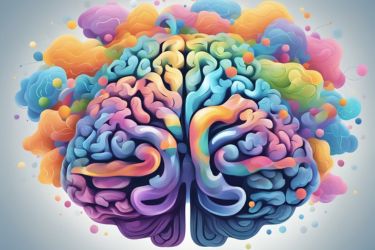In our fast-paced world, effective decision-making is crucial for both personal and professional success. Emotional intelligence plays a significant role in guiding our choices, helping us connect our feelings with logical reasoning. By understanding and managing our emotions, we can enhance our ability to make sound decisions that lead to better outcomes.

Empathy, a key part of emotional intelligence, allows us to grasp the perspectives of others. This skill is especially important in leadership roles, where understanding team members' emotions can foster collaboration and drive results. By applying emotional intelligence, we can navigate complex situations and make informed decisions that benefit everyone involved.
As we explore the link between emotional intelligence and decision-making, we will uncover how these elements interact and contribute to our success. By improving our emotional awareness, we can transform how we approach challenges, resulting in a more thoughtful and thorough decision-making process.
Fundamentals of Emotional Intelligence

Emotional intelligence (EI) is the ability to understand, manage, and harness emotions in ourselves and others. By grasping the basics of EI, we can improve our decision-making and interpersonal skills. Let's explore what EI entails and its key components.
Understanding Emotions and Intelligence
Emotions play a central role in our daily interactions and decisions. They influence our thoughts, behaviours, and choices. Emotional intelligence combines our awareness of our feelings with the ability to assess others' emotions. This awareness helps us respond effectively to different situations.
By recognising our emotional triggers, we can manage our reactions better. This self-awareness is critical in creating a mindful approach to challenges. Understanding others' emotions allows us to empathise and respond appropriately, fostering strong relationships. In essence, emotional intelligence enhances our capacity to make sound decisions based on both logic and feelings.
Components of Emotional Intelligence
Emotional intelligence consists of five key components:
- Self-Awareness: Recognising our emotions and their impact on our thoughts and behaviours.
- Self-Management: Controlling our emotional responses and staying adaptable.
- Social Awareness: Understanding the emotions of others, which helps us empathise and connect.
- Relationship Management: Building and maintaining healthy relationships through effective communication and conflict resolution.
- Motivation: Harnessing emotions to drive ourselves towards goals.
These components work together, enhancing our ability to interact with others and make informed decisions. By developing each area, we strengthen our overall emotional intelligence, leading to greater success in personal and professional contexts.
Emotional Intelligence in Decision-Making

Emotional intelligence plays a crucial role in how we make decisions. By understanding our emotions and the emotions of others, we can improve our decision-making process. In this section, we will explore how emotional awareness influences our choices, the integration of emotions with critical thinking, and how these can lead to better decision outcomes.
Influence of Emotional Intelligence on Decisions
Emotional intelligence helps us recognise and understand our emotions during decision-making. When we are aware of our feelings, we can respond more thoughtfully. This awareness allows us to distinguish between emotions that guide us positively and those that might cloud our judgment.
For example, when facing a tough choice, anger may lead to hasty decisions. By acknowledging this emotion, we can pause and consider our options more clearly. Studies show that recognising emotions can lead to more informed decisions.
Integrating Emotions and Critical Thinking
Combining emotional intelligence with critical thinking enhances our decision-making. While critical thinking involves analysing facts and logical reasoning, emotional awareness can offer valuable insights into our values and motivations.
For instance, when we make decisions that align with our values, we are likely to feel more satisfied. Gaining insights from our emotions can help us weigh the long-term effects of our choices. This balanced approach leads to richer, more thoughtful decisions.
Improving Decision Outcomes
Integrating emotional intelligence in decision-making can lead to better outcomes. When we manage our emotional responses, we can avoid impulsive choices and think strategically.
To achieve this, we can practise techniques such as mindfulness. This helps us stay present during decision-making and better manage our emotional state. Additionally, seeking feedback from others can provide new perspectives and reduce biases.
By developing both emotional intelligence and critical thinking, we can improve our decision-making process, resulting in more successful outcomes.
Applications in Leadership and Entrepreneurship

Emotional intelligence plays a critical role in both leadership and entrepreneurial activities. It helps us navigate relationships and make sound decisions that impact our teams and businesses.
Emotional Intelligence for Effective Leadership
In leadership, emotional intelligence enhances our ability to inspire and connect with our teams. It involves recognising and managing our emotions and those of others, which is vital for effective relationship management. Leaders with high emotional intelligence can foster a positive organisational culture.
Such leaders excel in areas like:
- Communication: They express thoughts clearly and listen actively.
- Conflict Resolution: They handle disputes calmly and fairly.
- Empathy: They understand team members' feelings, which boosts morale.
When we lead with emotional intelligence, we build trust. This trust encourages collaboration, increases productivity, and ultimately leads to better decision-making processes.
Emotional Intelligence in Entrepreneurial Activities
For entrepreneurs, emotional intelligence is essential when navigating the challenges of starting and running a business. It influences our decision-making styles and how we interact with clients, investors, and employees.
Key areas where emotional intelligence impacts entrepreneurship include:
- Risk Management: Understanding our own emotions allows us to make balanced decisions, even under pressure.
- Networking: Strong relationship management skills help in building connections that are crucial for business success.
- Adaptability: Emotionally intelligent entrepreneurs can adapt to changes and overcome obstacles more effectively.
By leveraging emotional intelligence, we position ourselves to create innovative solutions and respond to market demands with confidence.
Enhancing Personal and Professional Relationships

Emotional intelligence plays a crucial role in how we build and maintain relationships. By focusing on empathy, effective communication, and social skills, we can enhance our personal and professional connections significantly.
Building Interpersonal Dynamics
To strengthen our personal relationships, we need to develop empathy. This means understanding and valuing the feelings of others. When we show genuine concern, we foster trust and openness.
Effective communication is equally important. We should practice active listening, which involves truly hearing what others say without interrupting. This not only makes others feel valued but also helps us respond appropriately.
Additionally, we can enhance our social skills by engaging in meaningful conversations. This could be asking thoughtful questions or sharing personal anecdotes. These interactions deepen our connections and create a more supportive environment.
Navigating Professional Relationships
In professional settings, emotional intelligence greatly impacts our relationships with colleagues and clients. We can improve our professional dynamics by recognising and responding to the emotions of others.
Using clear and concise communication is vital. We should aim to articulate our thoughts while remaining open to feedback. This creates a collaborative atmosphere where everyone feels heard.
Moreover, our ability to manage conflicts effectively is key. When disagreements arise, we can approach them with empathy and a calm demeanour. This not only resolves issues more smoothly but also strengthens our professional networks.
Overall, by honing our emotional intelligence, we can enhance our personal and professional relationships, leading to more productive interactions.
Strategies for Boosting Emotional Intelligence
Improving our emotional intelligence is vital for effective decision-making. We can enhance our skills in self-awareness, emotional regulation, and reflection. These strategies help us understand our feelings better and respond appropriately to others.
Developing Self-Awareness and Empathy
To boost self-awareness, we should recognise our emotional triggers and responses. This involves paying close attention to how we feel in various situations. We can identify patterns in our emotions by using techniques such as mindfulness and observing our reactions.
Next, empathy plays a crucial role in understanding others. We can practice empathy by actively listening and considering other people's perspectives. This not only helps us connect with others but also enhances our social skills.
Regularly engaging in conversations about emotions helps us build these skills. We can ask questions like, “How did that make you feel?" This promotes a deeper emotional connection and aids in developing emotional awareness.
Techniques for Emotional Regulation
Regulating our emotions is essential for maintaining a clear mind during decision-making. One effective technique is deep-breathing exercises. When we feel stressed or overwhelmed, taking slow, deep breaths can calm our minds and allow for better reasoning.
Another method is to practise positive self-talk. By challenging negative thoughts, we can shift our mindset and improve our emotional state. For instance, instead of thinking, “I can’t handle this,” we can replace it with, “I can take this step by step.”
Additionally, engaging in regular physical activity can help manage our emotions. Exercise releases endorphins, which can improve our mood and resilience.
The Role of Reflection and Journaling
Reflection is a powerful tool in building emotional intelligence. Setting aside time for reflection allows us to assess our feelings and decisions.
Journaling can greatly support this process. Writing down our thoughts and emotions helps clarify our feelings and fosters emotional self-awareness. We can note specific situations that impacted our emotions and analyse them later.
In our journals, we can also document our emotional triggers. Recognising these triggers enables us to prepare and respond better to similar situations in the future. This practice helps us develop stronger reasoning skills when faced with conflicts or choices.





















